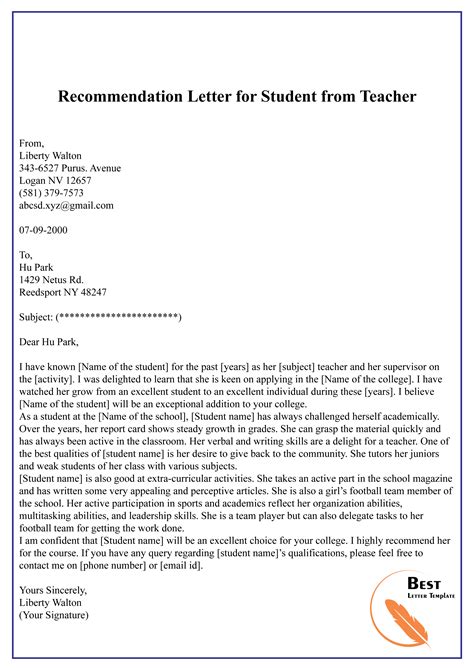In the competitive landscape of college admissions, every aspect of an application carries weight. Among the crucial factors that colleges consider is the strength and diversity of an applicant’s letters of recommendation. While some may assume that at least one letter must come from a STEM-related field, this is not necessarily true.

Understanding the Purpose of Recommendation Letters
Recommendation letters serve two primary purposes:
- Validation of Skills and Abilities: They provide an external perspective on an applicant’s character, work ethic, and accomplishments.
- Demonstration of Support: They indicate that the applicant has mentors or advisors who believe in their potential and are willing to advocate for their admission.
Benefits of Non-STEM Recommendation Letters
There are several advantages to having at least one recommendation letter from outside the STEM field:
- Holistic Evaluation: Colleges value well-rounded applicants who have developed transferable skills in various areas. A non-STEM letter can showcase an applicant’s proficiency in communication, critical thinking, and problem-solving in different contexts.
- Diversity of Perspectives: It allows the admissions committee to gain a broader understanding of an applicant’s abilities and interests. Non-STEM letters can highlight qualities such as creativity, empathy, or leadership, which may not be as easily evident through STEM-related coursework.
- Alignment with Career Aspirations: For students pursuing a non-STEM major, having a recommendation letter from a field related to their interests and goals can demonstrate their passion and commitment.
Considerations for STEM Recommendation Letters
While a non-STEM recommendation letter is not a requirement, there are some factors to consider:
- Course Rigor: If an applicant has taken advanced STEM courses, having a letter from a teacher in that field can highlight their mastery of the subject matter.
- Research Experience: For students pursuing STEM-related careers, a recommendation letter from a research mentor can be highly valuable.
- Special Circumstances: If a student has had significant involvement or achievements outside of STEM, such as extracurricular activities or volunteer work, a non-STEM letter can be essential in conveying these experiences.
Tips for Choosing Letter Writers
When selecting individuals to write letters of recommendation, consider the following:
- Choose Involved Individuals: Select writers who have witnessed your academic or extracurricular achievements first-hand.
- Diversify Perspectives: Choose individuals from different fields or backgrounds to provide a well-rounded view.
- Request Specific Details: Clearly communicate to the writers what aspects of your character and abilities they should highlight.
- Provide Materials: Share your resume, transcript, and other relevant materials with the writers to help them write a compelling letter.
Conclusion
The decision of whether or not to include a non-STEM recommendation letter in your college application is a personal one. By carefully weighing the benefits and considerations, students can make informed choices that optimize their application’s strength and diversity. Remember that the most important factor is to choose letter writers who can genuinely attest to your character, abilities, and potential.
